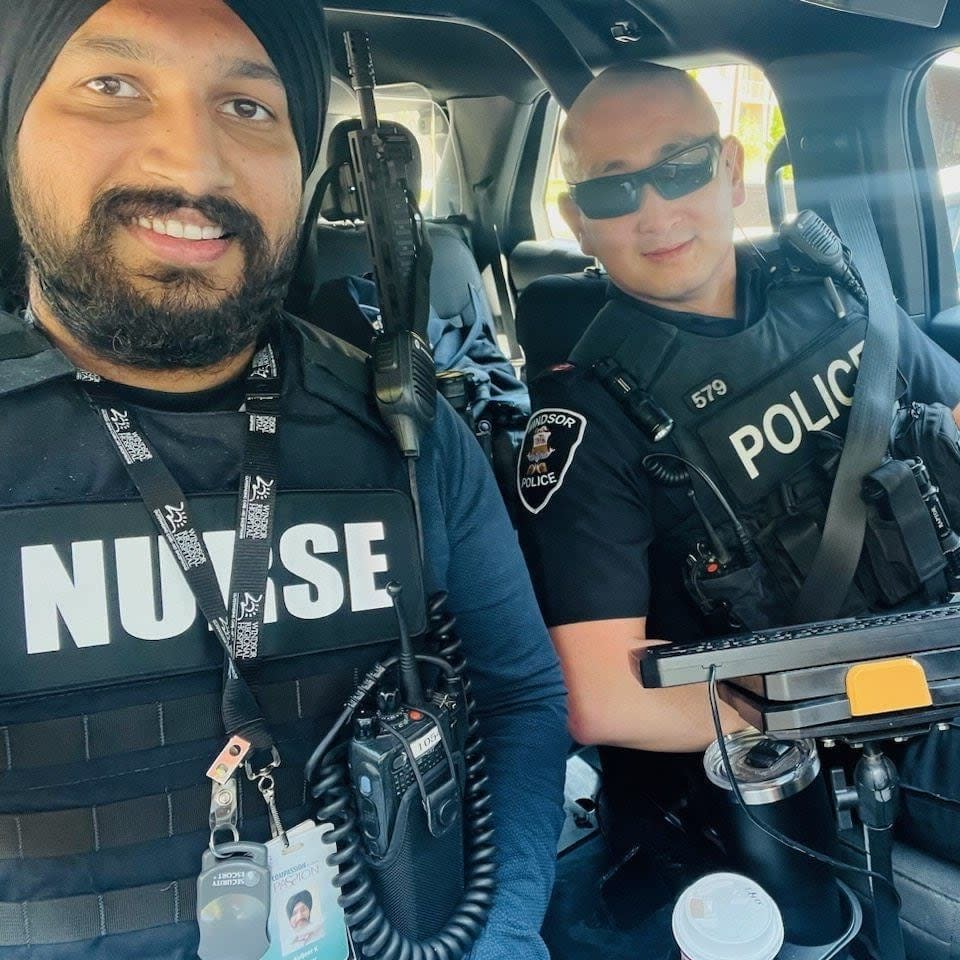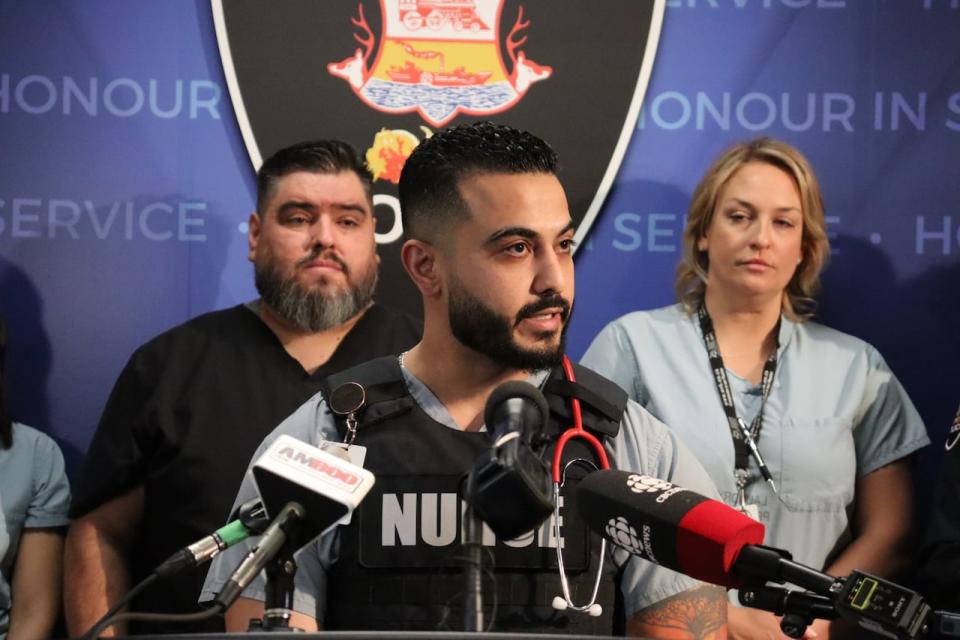Nurse-police health team project extended and seeing success, as advocates search for permanent funding

To Kuljeet Kalsi, the data is clear: a new nurse-police team program is keeping people out of emergency rooms but getting the care they need, where they're at.
The partnership between Windsor police and the Windsor Regional Hospital (WRH), which launched in May, has been extended for another six months, the organizations announced on Monday.
To date, the program has provided treatment to 374 people — 147 of whom haven't needed to go to the hospital as a result, helping divert people from already overcrowded emergency rooms.

A pilot program partnering nurses from Windsor Regional Hospital with frontline police officers has been extended another six months. Kuljeet Kalsi (left) said the program has helped divert nearly 150 people from the hospital's emergency department since it started in May 2023. (Windsor Police Service/Facebook)
"The main goal was to help these folks in the community, because we knew that we had people that were coming to the ER when their wounds were really bad. We knew that people were coming to us because they have nowhere else to go as well," said Kalsi, who is the program's manager and the operations manager for the WRH Ouellette campus emergency department.
It works by pairing nurses with police officers in teams to provide care to individuals in need, as well as referrals to other community services.
Often, Kalsi said, they're people who are fearful of accessing other services, or can't get care when other services are closed. The program aims to get them care where they're at in a bid to reduce emergency department visits.
To date, 374 people have been treated through the program, 253 people have been referred to other community resources, and 36 have received care for substance-related wounds.
The program initially launched running 11 a.m. to 11 p.m., but after feedback from the teams, shifted to 1 p.m. to 1 a.m. to reached more people in need. What started as a 90-day pilot has been extended six months, and they're still looking for ways to expand.
Nurses have volunteered to be assigned to the project. With an initial goal of eight nurses, Kalsi said 25 put up their hands — evidence of the need they see in the community, he said.

Abbas Haider hopes that the program will help to alleviate pressures on ER departments by assisting individuals with resources they need. (Jennifer La Grassa/CBC)
"They see what's going on in the emergency department and mental health unit," Kalsi said. "They see that we have a busy ER, that we have to triage patients …and they wished that they could go out to them or they could go somewhere else so they didn't have to go to the ER.
"When we put this offer, they just jumped on it and wanted to be part of it."
In a July update on the program, Windsor police said officer transfer times were down to 22 minutes, from on average between 3 and 11 hours.
"The impact of this partnership has been beneficial to our community in multiple ways," said Windsor police Chief Jason Bellaire said. "This really is a 'made-in-Windsor' solution, but we have received enquiries from other police services and hospitals across the province who are looking at these strategies as potential models to examine and possibly implement in their own cities."
Essex-Windsor EMS recently launched a "groundbreaking" paramedicine program that will designate low-acuity calls to a community paramedicine team. When that team responds, patients will be given a suite of treatment options including the ER.
One team started operating in August, with another two to come in September. The team has been successful in diverting 26 of 38 calls they've been assigned, the paramedics' deputy chief said.
Now, the goal is to secure long-term funding, Kalsi said. Both the hospital and Windsor police are working to help keep the program going. He hopes to see the program expand its hours to address times when ER volumes are high, between 7 p.m. and 5 a.m.
"Our hope is that we continue to expand this pilot project, to expand hours," Kalsi said. "Our end goal is to make sure we can provide spot on treatment to mitigate ER visit, if not mitigate a hospital admission, because of the initial interventions we do."
Get the news you need without restrictions. Download our free CBC News App.


